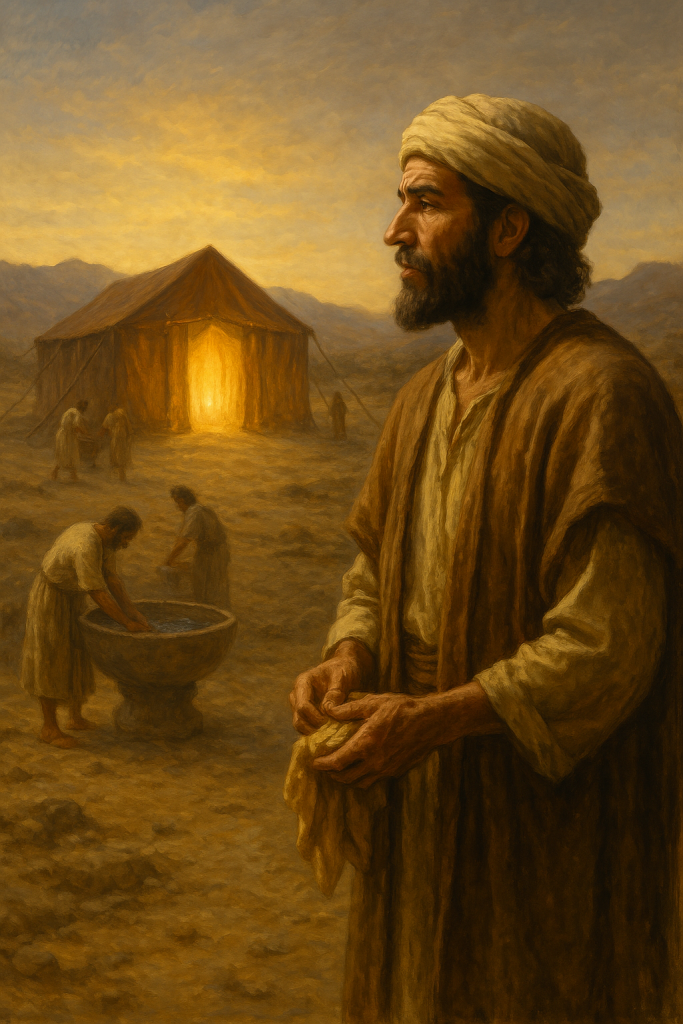The phrase remember the sabbath day to keep it holy, your meaning directly from the Ten Commandments found in Exodus 20:8. It is not a mere suggestion, but a divine command with deep spiritual significance. In its original context, this instruction served as a covenantal sign between God and His people, marking a day of rest, worship, and remembrance of the Creator.

The Hebrew word for “remember” (zakar) implies an active, purposeful act, not just a passive recollection. To “keep it holy” (qadash) means to set the day apart from all others, devoting it to sacred purposes. From the very beginning, God Himself modeled this rhythm when He rested on the seventh day after completing creation (Genesis 2:2–3). Thus, the Sabbath was not designed merely as a rule but as a gift, allowing humanity to pause, realign, and reconnect with the divine.
Even today, in a world driven by productivity and constant motion, this principle holds profound relevance. Honoring the Sabbath cultivates a rhythm of rest that nourishes the soul, restores the body, and deepens one’s relationship with God. Understanding the remember the Sabbath day to keep it holy meaning invites believers to rediscover a sacred pattern that brings peace, order, and spiritual renewal.
Remember the Sabbath to Keep It Holy Meaning
The phrase “remember the Sabbath to keep it holy” appears prominently in Exodus 20:8 and is foundational to the moral and spiritual framework established by God at Sinai. Within the broader context of the Ten Commandments, this directive carries both a divine mandate and a theological depth that transcends time and cultural boundaries.
In the Hebrew Bible, this command is unique in that it bridges worship and ethical living. It connects the divine act of creation, where God rested on the seventh day, with human obedience. The command is not simply about abstaining from labor, but about intentionally setting apart time for sacred reflection, worship, and rest. This rhythm of six days of work followed by a day of sanctified rest mirrors God’s own creative pattern and reinforces humanity’s dependence on His provision and sovereignty.
In Jewish tradition, Shabbat is observed from sunset Friday to sunset Saturday, marked by rest, prayer, and communal meals. It is a weekly celebration of creation and liberation, deeply rooted in identity and covenant. In Christianity, interpretations differ. Some denominations uphold the seventh-day Sabbath, while others see Sunday, the day of Christ’s resurrection, as the fulfillment and continuation of the Sabbath principle. Regardless of the day, the essence remains: remembering the Sabbath to keep it holy is an act of honoring God, reflecting His holiness, and experiencing spiritual renewal.
By exploring the remember the Sabbath to keep it holy meaning in its biblical and historical context, believers are invited to reclaim the gift of sacred time in a hurried world.
Read also our article: What is Uncleanness in The Bible.
The Sabbath in Modern Christian Life
In today’s Christian context, the understanding and observance of the Sabbath varies significantly across denominations. While the core idea of dedicating one day to rest and worship remains, the practical expressions of this commandment have adapted over time.
For most Jewish communities, the Sabbath, Shabbat, is strictly observed from Friday evening to Saturday evening, in direct adherence to the biblical instruction. It involves ceasing from work, engaging in prayer, and embracing sacred time with family and God. In contrast, many Christian traditions have shifted this observance to Sunday, the day commemorating the resurrection of Jesus Christ.
This transition was not arbitrary. Early Christians began gathering on the first day of the week, known as the Lord’s Day, as a way to honor Christ’s victory over death. Over the centuries, Sunday worship became the norm in many branches of Christianity, especially within Roman Catholicism and Protestantism. Still, groups like the Seventh-day Adventists and some Messianic congregations continue to observe the Saturday Sabbath, emphasizing the unchanged nature of the fourth commandment.
From a practical standpoint, remembering the Sabbath in modern Christian life may not always mean rigid adherence to a specific day. Instead, it often reflects a deeper commitment to setting aside intentional time for spiritual renewal, worship, and rest. This aligns with the broader remember the sabbath day to keep it holy meaning, acknowledging God’s authority, embracing His rhythm for life, and prioritizing His presence in our weekly routine.
No matter the tradition, the principle remains: honoring the Sabbath is about more than the day, it’s about the heart behind it.
Rest, Purpose, and Connection with God
At its core, the Sabbath is not merely a break from labor, it is a sacred invitation. An invitation to slow down, realign priorities, and reconnect with the One who created us. In a world constantly pushing for more productivity, the biblical command to “remember the Sabbath to keep it holy” stands as a radical countercultural call to rest with purpose.
The Sabbath offers intentional space for physical rest, mental clarity, and spiritual renewal. It is a weekly rhythm designed by God not just for ceasing activity, but for deepening communion with Him. In pausing from daily routines and worldly distractions, believers create room for worship, reflection, and intimacy with the divine.
This practice reflects the very essence of the remember the sabbath day to keep it holy meaning. It’s not about rigid rules, it’s about realigning our lives with God’s design. When we honor the Sabbath, we’re reminded that our identity and value are not found in constant doing, but in being children of a gracious and loving God.
More than a legal obligation, the Sabbath is a gift, one that restores the soul, cultivates gratitude, and reminds us of eternal truths. Choosing to rest in God is choosing to trust His provision and wisdom, placing Him at the center of our time and our lives.
Spiritual Applications: Making the Day Holy in Practice
Living out the remember the Sabbath day to keep it holy meaning in today’s world requires more than simply marking a calendar, it calls for intentionality. In a culture filled with noise and constant demands, setting aside one day as sacred demands both discipline and devotion.
To honor the Sabbath in practical terms, believers can begin by creating a rhythm of rest that includes worship, reflection, and family connection. Starting the day with Scripture reading or a time of quiet meditation centers the heart on God’s presence. Attending a church service or participating in a family devotion reinforces spiritual priorities and builds a sense of sacred community.
Prayer throughout the day, even in simple moments, turns attention to God and renews the soul. Taking time to enjoy nature, share meals with loved ones, or serve others in love can also reflect the heart of Sabbath rest, bringing refreshment, joy, and a deeper awareness of God’s goodness.
While practices may vary, the goal remains the same: to set the day apart for spiritual renewal and relational depth. Whether one observes Saturday or Sunday, the call to remember the sabbath to keep it holy meaning leads us into a richer walk with God, anchored in grace, rest, and intentional worship.
For more insight into how spiritual signs point us back to God’s presence, you may also enjoy this reflection on seeing 444 and 1111 biblical meaning, which explores how divine patterns appear in everyday life.
